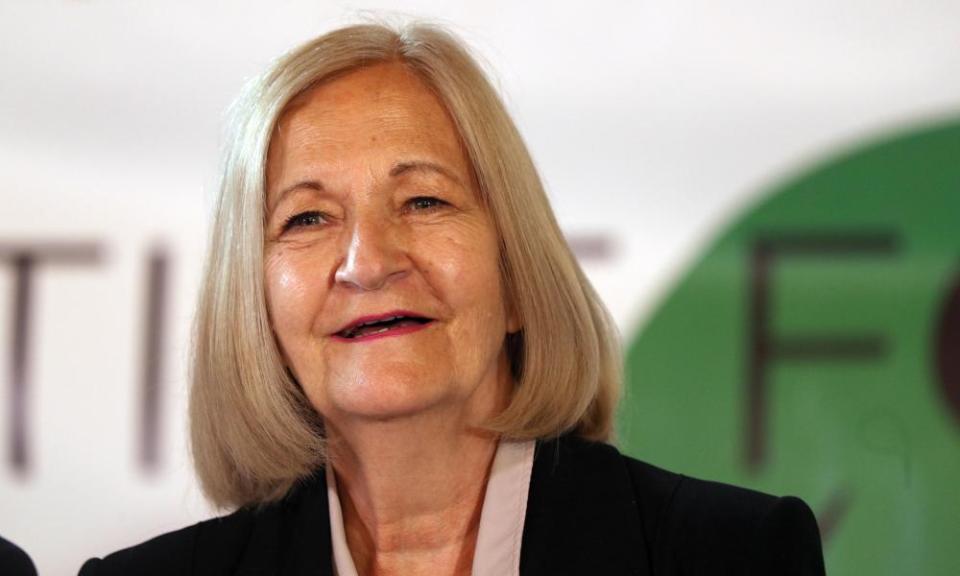Culture of misogyny skews justice system against women, claim victims’ champions

A “culture of misogyny” runs through the criminal justice system “to the detriment of women across England and Wales”, the victims’ and domestic abuse commissioners tell government in a scathing five-page joint letter to be delivered today, International Women’s Day.
Dame Vera Baird and Nicole Jacobs call for “greater recognition of the devastation caused by domestic homicide” and say there are deficiencies across the criminal justice system and statutory services. “Domestic abuse is a hidden crime which the police still poorly understand,” they write.
Related: End femicide: 278 dead – the hidden scandal of older women killed by men
They express concern that men who kill their partners receive more lenient sentences than women, and sentences do not reflect the seriousness of domestic abuse.
The letter comes as the Observer launches a campaign today to tackle femicide, the killing of a woman by a man, not just as a result of domestic abuse but also outside the home. Among the aims of the campaign are the proper collection of data including information on ethnicity and race of victims and perpetrators; proper recording of sexual violence, often ignored if the main focus is on a murder charge; and better identification of hidden homicides including suspicious falls from a height, suicides and drug-related deaths.
In their letter to the home secretary, Priti Patel, the lord chancellor, Robert Buckland, and the attorney general, Michael Ellis, the commissioners write: “We are very concerned that the sentences received by men who kill their female partners or ex-partners do not reflect the seriousness of domestic abuse, nor do they reflect the fact that these homicides often follow a period of prolonged abuse.”
Baird, the victims’ commissioner, and Jacobs, the domestic abuse commissioner, cite the recent case of Anthony Williams, sentenced to five years for the manslaughter of his wife, Ruth Williams, on the grounds of diminished responsibility following the introduction of the first Covid-19 lockdown.
The commissioners point out that this compares with the life sentence that Sally Challen received in 2011, which was eventually quashed and reduced to a manslaughter charge with a 14-year jail term. Challen killed her husband after facing years of abuse and was initially convicted of murder.
They write: “When compared to the five-year sentence handed down to Anthony Williams for killing his wife, Ruth, it is difficult to understand the discrepancy.” The commissioners say they fear women are disproportionately penalised. They cite evidence from the Centre for Women’s Justice that women were more likely to use a weapon to defend themselves against an abusive partner, but this attracts a longer sentence than violence without a weapon.
There is insufficient acknowledgement in current law or sentencing of the common imbalance in physical strength between perpetrator and victim, they say. Use of a weapon is far more likely to be a necessity if it is in response to a stronger abuser, yet this is not recognised.
In addition to calls for a review of sentences with links to domestic abuse, the letter also demands that every domestic homicide be subject to an independent review, a domestic homicide review (DHR) to analyse what mistakes were made on the part of involved agencies and make recommendations to stop future errors.
The commissioners had expressed their concern that the Home Office had agreed that a review was not necessary in the case of Ruth Williams. On Saturday, Victoria Atkins, safeguarding minister, said that the home secretary had overturned that decision, and a Williams review will now take place. “Having personally reviewed this case, the home secretary is not satisfied … that there are no lessons to be learned from this tragic case.”
Harriet Harman, mother of the House, as Labour’s solicitor general was responsible for establishing DHRs in 2004. She gives the letter her full support, as does Frank Mullane, of Advocacy After Fatal Domestic Abuse, assisting families affected by a killing.
The commissioners are also calling for an “independent national oversight mechanism” for DHRs. This would sit within the domestic abuse commissioner’s office and ensure the right questions are asked following a domestic homicide or suicide and that recommendations are implemented to prevent future deaths. The commissioners say that the domestic abuse bill, which returns to the House of Lords on Monday, would offer this opportunity.

 Yahoo Finance
Yahoo Finance 